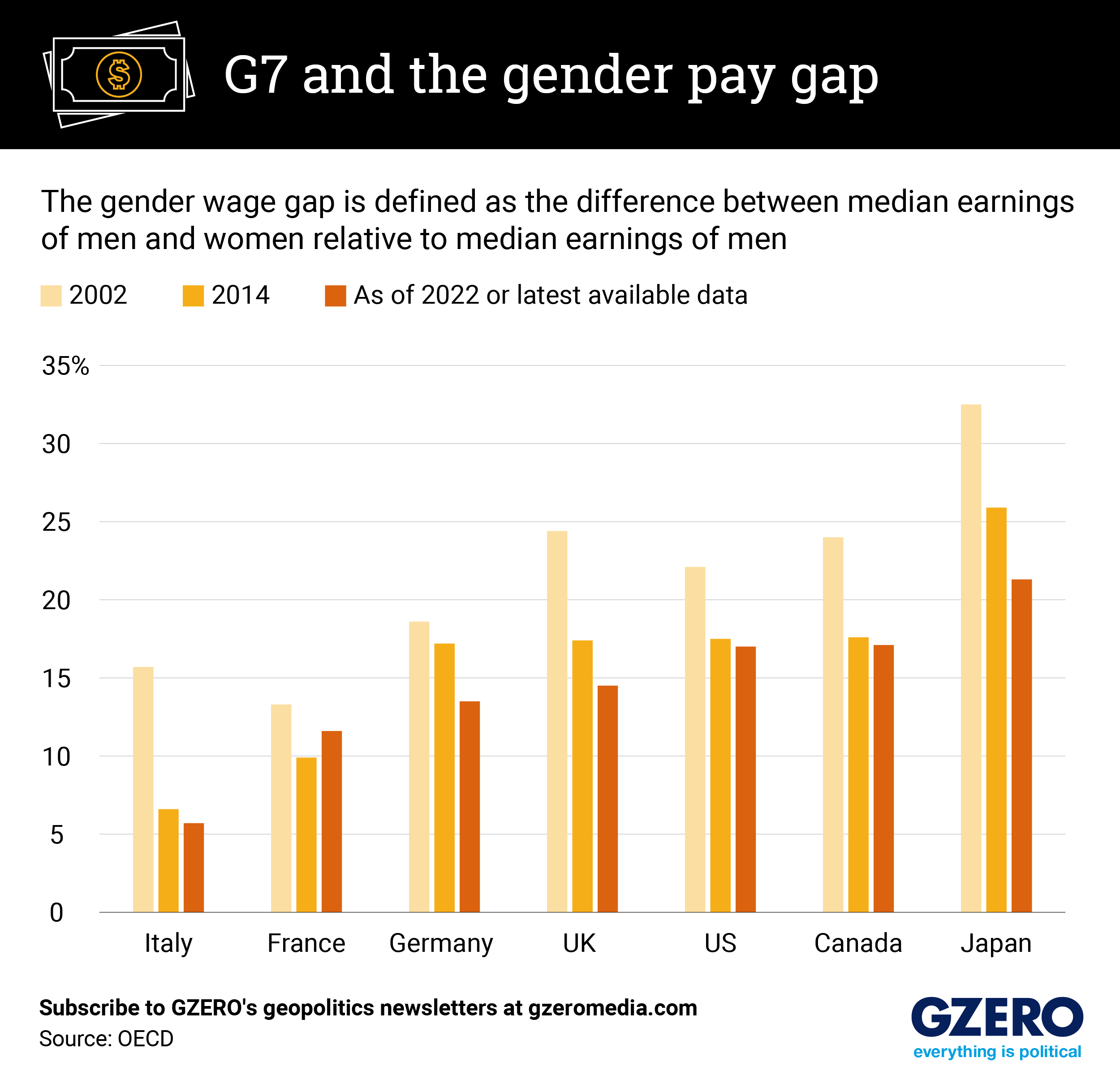April 11, 2024
Despite lofty rhetoric about equality from politicians in Washington and Ottawa, the US and Canada are trailing behind several of their G7 counterparts (though both far ahead of Japan) when it comes to progress made in narrowing the gender pay gap over the past two decades or so, OECD data shows.
Women working full-time in the US make 84 cents for every dollar men make, according to the Census Bureau. Canadian women make 88 cents for every dollar men make, per the Canadian Chamber of Commerce.
Since 2002, the gender wage gap — defined as the difference between median earnings of men and women relative to median earnings of men — has declined in the US from 22.1% to 17%. During the same period in Canada, it declined from 24% to 17.1%.
Are the US and Canada doing enough to narrow the gender pay gap?
From Your Site Articles
More For You
- YouTube
In this Quick Take, Ian Bremmer examines what may come next in the US-Israel war with Iran as the Trump administration signals significantly larger military operations ahead.
Most Popular
FILE PHOTO: Canadian Prime Minister Mark Carney and India's Prime Minister Narendra Modi shake hands before posing for a photo during the G7 Leaders' Summit in Kananaskis, in Alberta, Canada, June 17, 2025.
REUTERS/Amber Bracken/File Photo
Indian Prime Minister Narendra Modi and Canadian Prime Minister Mark Carney struck a series of deals during a meeting in New Delhi on Monday, including a 10-year nuclear energy deal under which Canada will provide India with uranium.
A satellite image shows black smoke rising and heavy damage at Iranian Supreme Leader Ayatollah Ali Khamenei's compound, following strikes by the United States and Israel in Tehran, Iran, on February 28, 2026.
Pleiades Neo (c) Airbus DS 2026/Handout via REUTERS
Supreme Leader Ali Khamenei is dead, the conflict is spreading, and US President Donald Trump still isn’t clear on who he wants to run Iran.
Shipping in the world’s most crucial oil chokepoint has nearly ground to a halt after at least four tankers were targeted in Iran’s retaliation to US and Israeli strikes on Saturday.
© 2025 GZERO Media. All Rights Reserved | A Eurasia Group media company.
